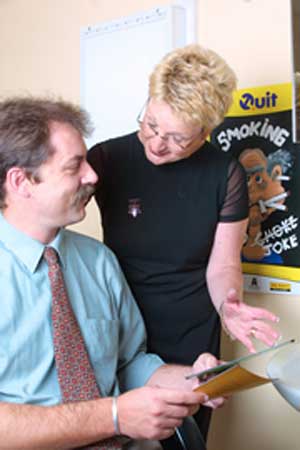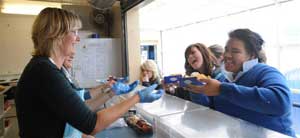Health Promoter
Tasks & duties

Health promoters may do some or all of the following:
-
develop policies, strategies and programmes for improving health
-
work with other agencies to co-ordinate health promotion programmes
-
advocate and lobby for health promotion causes
-
work alongside schools and community groups to identify health issues and solutions
-
manage health promotion programmes
-
establish networks in the community
-
develop promotional and educational material for publication
Specialisations
Health promoters may work in specific community settings such as schools or workplaces. They may specialise in working with certain population groups, such as Māori, Pasifika or Asian people, migrants, children, men, or the elderly.
They may also specialise in educating people about certain topics, such as:
-
family violence
-
alcohol and tobacco use
-
mental health
-
healthy housing
-
community development
Skills & knowledge

Health promoters need to have:
-
an understanding of different cultural approaches to health
-
knowledge of the health system and political environment
-
knowledge of the Treaty of Waitangi and the Ottawa Charter of Health
-
excellent communication skills
-
planning and project management skills
-
evaluation skills, for assessing how effective their programmes are
-
facilitation and negotiation skills
-
writing skills
-
computer skills
Entry requirements
There are no specific entry requirements to become a health promoter. However, employers often prefer you to have a tertiary qualification in health promotion, health, social sciences or education, along with knowledge of a related field such as child health, youth work, community housing, or nutrition.
Secondary education
Useful subjects for health promoters include English, te reo Māori, science, health and physical well-being, geography, media and design.
Training on the job
Some health promoters learn skills on the job while studying toward a health qualification. Short-term, part-time and extramural courses in health promotion and public health are available from entry-level to postgraduate level.
Useful experience
Useful experience for health promoters includes:
-
health industry work
-
work with government agencies, charities or community groups
-
It is also useful to find out what types of health promotion activities are happening in your community and get involved
As many health promoters work in a specific area of health or with a particular sector of the community, experience with these areas or groups is useful.
Related courses
Community Health
Health Education, Promotion, Counselling
For more information, please refer to Career Services.
Document Actions
